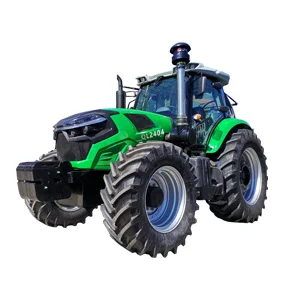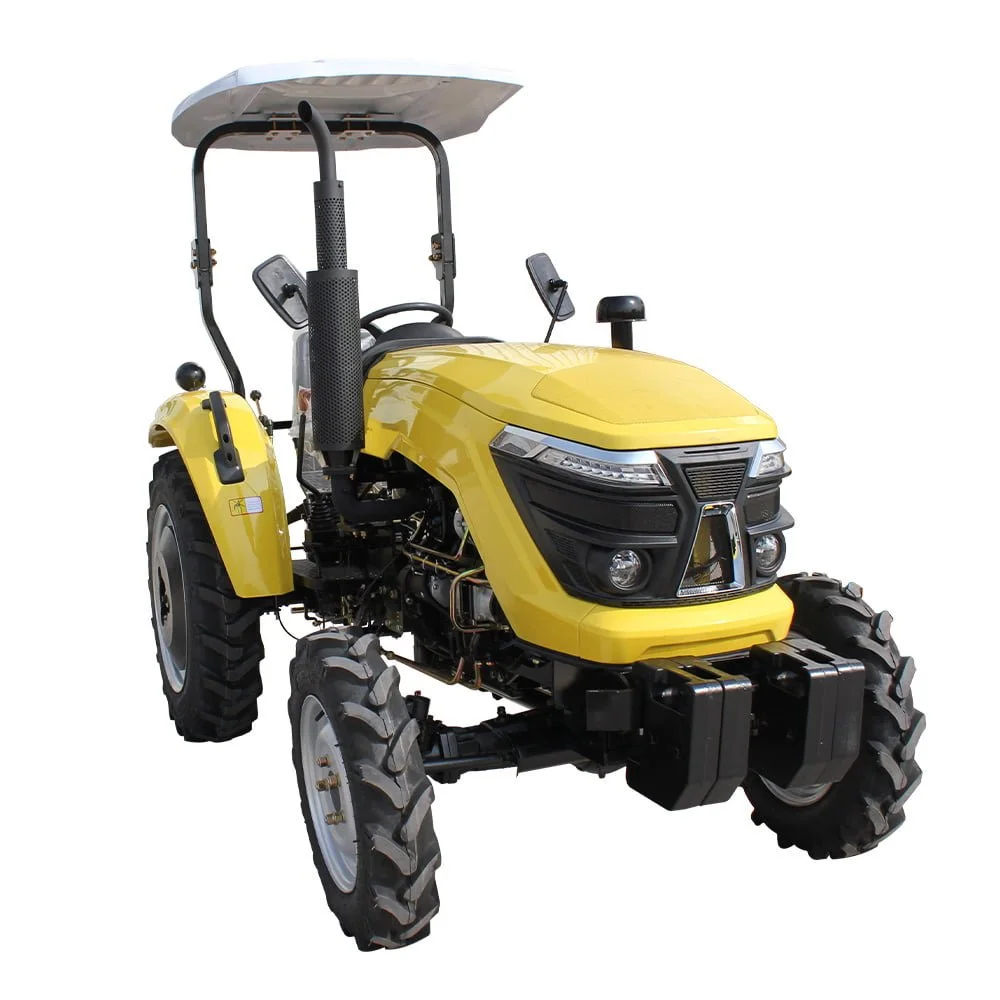Email: [email protected] Whatsapp: 8618266768780
Why a Tractor for Agriculture is Essential for Farming
Welcome to My Blog!
Before we dive into the content, I’d love for you to join me on my social media platforms where I share more insights, engage with the community, and post updates. Here’s how you can connect with me:
Facebook: https://www.facebook.com/profile.php?id=100072217509763
LinkedIn: https://www.linkedin.com/company/74949059/admin/dashboard/
YouTube:https://www.youtube.com/@tractormanufacturer-lc5qz
TikTok: https://www.tiktok.com/@tractormanufacturer
Now, let’s get started on our journey together. I hope you find the content here insightful, engaging, and valuable.
Table of Contents
Introduction

Modern agriculture relies heavily on technology to improve efficiency, productivity, and sustainability. Among the most critical pieces of farming equipment is the tractor for agriculture. Tractors have revolutionized farming by enabling farmers to perform various tasks with greater ease and speed. From plowing fields and planting crops to hauling materials and managing livestock, tractors play an indispensable role in today’s agricultural industry.
This guide explores why a tractor for agriculture is essential for farming, the different types of tractors available, key features to consider when selecting one, and the future of agricultural mechanization.
The Importance of a Tractor for Agriculture
Increased efficiency and productivity
Tractors significantly reduce the time and labor required for agricultural tasks. Traditional manual farming methods are not only slow but also physically demanding. A tractor for agriculture allows farmers to cultivate larger areas in less time, leading to higher crop yields and improved farm management.
Versatility in farming operations
Modern tractors come with various attachments and implements that enable them to perform multiple farming tasks. These include plowing, harrowing, planting, fertilizing, harvesting, and even irrigation. With the right attachments, a single tractor for agriculture can replace multiple pieces of equipment, reducing costs and optimizing farm operations.
Reduced labor dependency
With the global agricultural industry facing labor shortages, tractors provide a reliable solution to compensate for the lack of farm workers. They allow a single farmer to manage large areas with minimal manual labor, reducing overall farming costs.
Soil conservation and precision farming
Advanced tractors equipped with GPS and precision farming technology help in soil conservation and resource optimization. They allow for accurate seed placement, efficient fertilizer application, and reduced soil compaction, leading to healthier crops and sustainable farming practices.
Cost-effectiveness in the long run
While purchasing a tractor for agriculture requires an initial investment, the long-term benefits outweigh the costs. Increased efficiency, reduced labor expenses, and improved farm productivity make tractors a cost-effective investment for farmers.
Types of Tractors for Agriculture
Utility tractors
Utility tractors are versatile machines designed for general farming tasks, including plowing, tilling, hauling, and light construction work. These tractors are commonly used in medium to large farms where multiple operations are required.
Row crop tractors
Row crop tractors are specifically designed for planting, cultivating, and harvesting row crops such as corn, wheat, and soybeans. They offer high ground clearance and adjustable row spacing to prevent crop damage.
Orchard tractors
Orchard tractors are compact and designed to operate in narrow spaces such as orchards and vineyards. They have a streamlined body to avoid damaging trees and crops while maneuvering between rows.
Compact tractors
Compact tractors are ideal for small farms, homesteads, and gardening. They are lightweight, fuel-efficient, and capable of handling tasks like mowing, tilling, and landscaping.
Four-wheel drive (4WD) tractors
4WD tractors provide enhanced traction and power, making them suitable for heavy-duty farming tasks, such as plowing in rough terrains and large-scale land preparation. These tractors are preferred in large commercial farms and challenging soil conditions.
Key Features to Consider When Choosing a Tractor for Agriculture


Engine power and horsepower
Tractor horsepower determines its capability to perform heavy-duty tasks. Small farms may require tractors with 30-50 HP, while large-scale farms need tractors with over 100 HP.
Transmission type
Tractors come with manual, hydrostatic, or power-shift transmissions. Each type offers different levels of control and efficiency, depending on the farm’s needs.
Fuel efficiency
Fuel consumption is a critical factor in operating costs. Selecting a tractor for agriculture with a fuel-efficient engine ensures cost savings and lower environmental impact.
Attachment compatibility
Farmers should consider the range of implements and attachments a tractor can support, such as plows, seeders, balers, and sprayers, to maximize versatility.
Operator comfort and safety
Modern tractors are designed with ergonomic seats, air-conditioned cabins, and advanced safety features such as rollover protection systems (ROPS) to ensure operator safety and comfort.
Comparison of Different Tractors for Agriculture
| Feature | Utility Tractor | Row Crop Tractor | Orchard Tractor | Compact Tractor | 4WD Tractor |
|---|---|---|---|---|---|
| Farm Size | Medium-Large | Large | Small-Medium | Small | Large |
| Main Use | General farming | Row crops | Orchards | Landscaping | Heavy-duty |
| Horsepower Range | 50-100 HP | 80-150 HP | 40-80 HP | 20-50 HP | 100+ HP |
| Attachments | Yes | Yes | Limited | Yes | Yes |
| Maneuverability | Moderate | High | Very High | Very High | Moderate |
| Terrain Suitability | Flat, hilly | Flat, rolling | Narrow rows | Small areas | Rough, wet |
Future Trends in Agricultural Tractors

Smart tractors with automation
Advancements in technology have led to the development of autonomous and semi-autonomous tractors that can operate with minimal human intervention. These smart tractors use sensors, AI, and GPS to optimize farming operations.
Electric and hybrid tractors
With the rising demand for sustainable farming, manufacturers are developing electric and hybrid tractors for agriculture that reduce fuel consumption and carbon emissions.
Precision farming integration
Modern tractors are being equipped with precision farming technologies, including drones, satellite mapping, and real-time data analytics, to improve efficiency and reduce resource wastage.
Multi-purpose tractors
Future tractors will continue to be designed with multi-functionality in mind, allowing them to perform a wider range of tasks with quick attachment changes.
Conclusion
A tractor for agriculture is an essential tool that significantly enhances farming efficiency, productivity, and sustainability. With different types of tractors available, farmers must carefully assess their needs to select the most suitable model. The future of agricultural mechanization is evolving, with smart technology and eco-friendly solutions shaping the industry.
Investing in the right tractor for agriculture ensures long-term benefits, including reduced labor costs, improved soil health, and increased crop yields. As technology continues to advance, farmers will have access to even more sophisticated and efficient tractors to meet the growing demands of modern agriculture.
FAQ
What size of tractor is best for a small farm?
For small farms, compact tractors with 20-50 HP are ideal. They are fuel-efficient, easy to operate, and capable of handling essential farming tasks like mowing, tilling, and light hauling.
How often should a tractor be serviced?
Regular maintenance is crucial for ensuring optimal performance. Routine servicing should be done every 100-200 operating hours, including oil changes, filter replacements, and engine checks.
Can a single tractor perform multiple farming tasks?
Yes, modern tractors come with various attachments such as plows, seeders, sprayers, and balers, allowing them to perform multiple agricultural functions efficiently.
Are electric tractors a good option for agriculture?
Electric tractors are an emerging trend in sustainable farming. They offer reduced fuel costs and lower emissions, making them a promising option for eco-friendly agriculture. However, availability and charging infrastructure remain key considerations.
How do I choose the best tractor brand for agriculture?
Consider factors such as engine power, durability, fuel efficiency, and availability of spare parts. Well-known brands like John Deere, Qilu, Massey Ferguson, and New Holland offer reliable agricultural tractors with strong customer support.
About Us
Shandong Qilu Industrial Co., Ltd. is a professional manufacturer and exporter integrating the development and production of excavators, loaders and tractors. We provide the best service, absolutely.
Recent Posts
Video demo
-1.png)
Contact Us Today!
Any question, quote or inquiry? Click the button to send message.
Qilu Industrial will always here to help.
